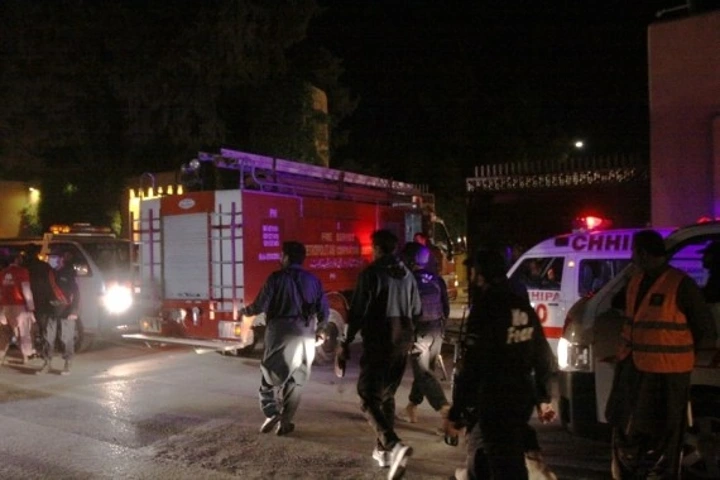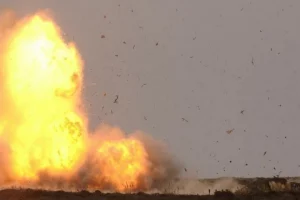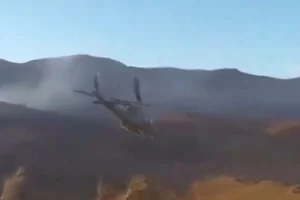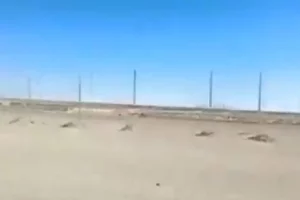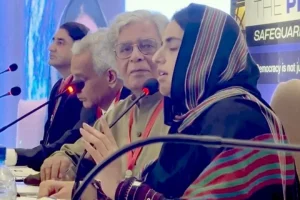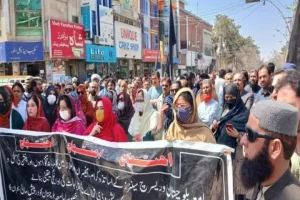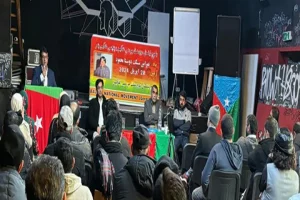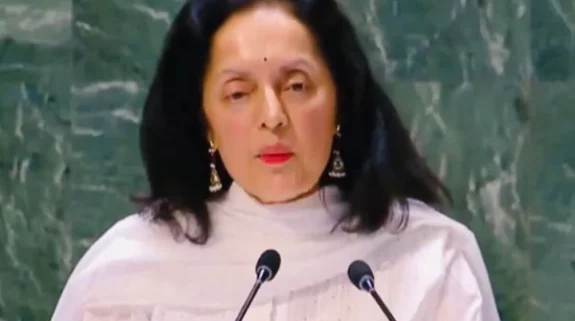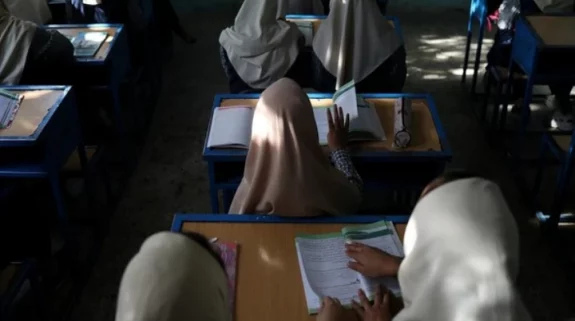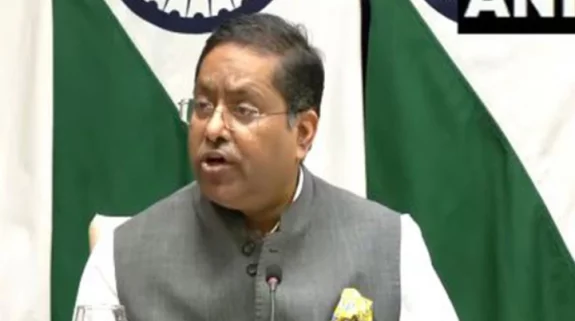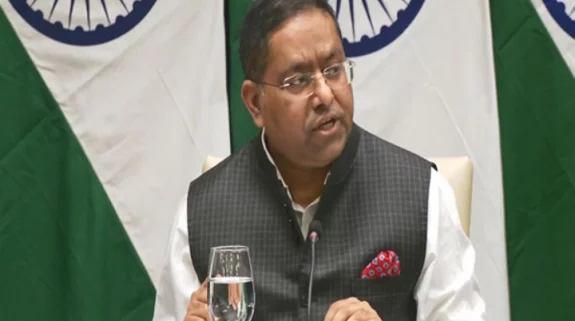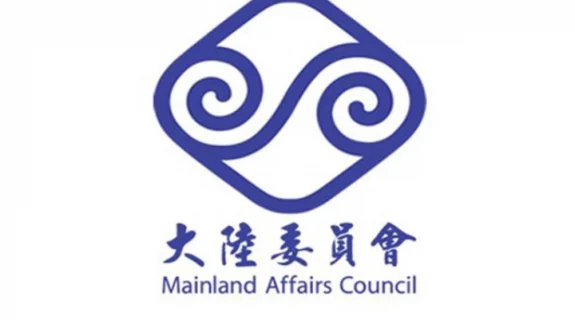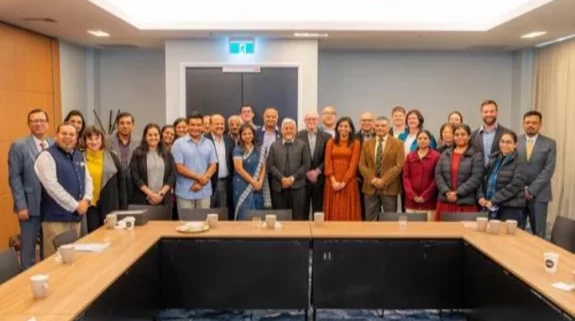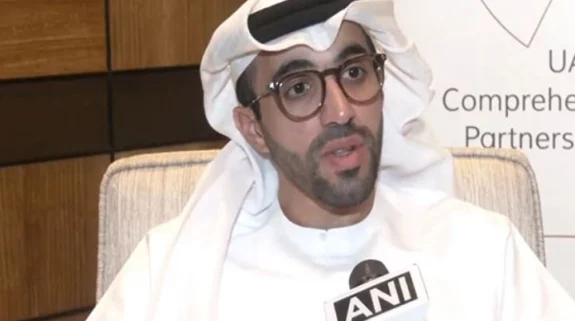Pakistan's Interior Ministry confirmed before the parliament earlier this week that anti-Pakistan outfits are regrouping in Balochistan through the Iranian province of Sistan and Baluchestan.
This confession comes months after some of the most daring attacks took place on Pakistani security forces in Balochistan–Pakistan's mineral-rich but poorest province on human development indicators. One of the deadly attacks took place in Kech, on the Pakistan-Iran border after which Islamabad pointed out that the attackers had crossed over from the Iran border.
The Interior Ministry also listed out the various measures it has activated to tackle rising nationalist tendencies in the province. The responses before the National Assembly–the lower house of the parliament were attributed to Interior Minister Sheikh Rashid Ahmed.
Exclusive Footage of Pakistani gunship helicopters carrying out a military operation in the mountainous region between Kalat and Sibbi last week. pic.twitter.com/HHIQdzbDLw
— The Balochistan Post – English (@TBPEnglish) March 28, 2022
The Interior Ministry was responding to Pakistan People's Party legislator Shazia Sobia Aslam Soomro who asked if it was true that “anti-Pakistan terror outfits are regrouping in Balochistan via Sistan, and if yes, details thereof along with action plan thereof, if any”.
Pakistani newspaper Dawn reports that, the interior ministry stated: “Yes, anti-Pakistan terror outfits are regrouping in Balochistan via Sistan.”
The ministry added that as part of its counter offensive, "the National Intelligence Coordination Committee (NICC) has been institutionalised" to integrate all federal and provincial intelligence grids for timely countermeasures.
The ministry said that effective border management and fencing with Iran and Afghanistan is being done to control the situation in Balochistan.
Mark Kinra, geopolitical analyst on Pakistan, told India Narrative that Balochistan is a large nation, which was divided by the British between Pakistan, Iran and Afghanistan. “Initially, Pakistan began to blame India for the armed insurgencies in Balochistan but lately it has also started blaming Iran. On the other hand, the Baloch nationalists were targeted by both Pakistan and Iran during 1970’s for separatist tendencies”.
He adds that Pakistan due to its sectarian character is involved in providing to terrorist and sectarian organisations like Jaish-ul-Adl which have a history of targeting Iran. "If Pakistan’s claims are true, than Iran is supporting Baloch nationalists in Pakistan in a tit-for-tat effort because supporting Baloch for any other reason could become problematic for Iran itself as it has long fought Baloch separatists in Sistan-Baluchestan".
Read More:
Balochistan: Deceived by Jinnah’s Pakistan and let down by Nehru’s India?
Other measures listed by the ministry include "intelligence-based operations to neutralise terror organisations”. The Baloch nationalists and the local media have been alleging for long that Pakistani forces are also using helicopter gunships to attack not just the rebels but also Baloch civilians.
The government also said that it is trying to engage disgruntled Baloch tribesmen for reconciliation, planning socio-economic development packages, and reaching out to the most marginalised segments of society and engaging the youth in constructive activities.
The nationalist upsurge in Balochistan is undermining not just Pakistan's security but also its credibility before all-weather friend China as the rebels have made Chinese nationals and investment a core focus of their ire, pushing China-Pakistan diplomatic relations downhill.
The gigantic $62 China Pakistan Economic Corridor (CPEC) that connects China through Pakistan to the Arabian Sea runs for a large part through Balochistan. This ambitious project has come under attack from Baloch nationalists who view it as an instrument of exploitation of their community. The resultant animosity has seen the Baloch launch attacks against Chinese projects and also engineers.
Baloch armed groups carried out audacious attacks on Pakistani paramilitary forces, Frontier Corps in Nushki and Panjgur on February 2 simultaneously. The well-armed Baloch attackers took over the camps and held the Pakistani security forces at bay.
The attackers held the Noshki camp for one day while the Panjgur camp was taken over for three days–creating a most humiliating situation for the Pakistani army. A Pakistani military said nine of its personnel, including an officer, lost their lives while 20 attackers were killed in the operations. Prime Minister Imran Khan visited the camp while General Qamar Javed Bajwa visited Balochistan thrice in a short span.
Ironically for Pakistan, the takeover of Afghanistan by the Islamabad-friendly Taliban has only added to its woes. Radical Islamist organisations operating in the badlands of Afghanistan now eye Pakistan as the next State to be converted to their ideology. Since August 2021, Pakistan has witnessed intense activity by the Tehreek-i-Taliban Pakistan (TTP) and the Islamic State (IS).
Besides the Baloch fighters, the TTP and the IS too have carried out major attacks killing security forces as well as civilians.






